MercoPress. South Atlantic News Agency
Tag: Dilma Rousseff
-
Saturday, August 30th 2014 - 10:53 UTC
Brazil in recession; Minister Mantega blames external factors and World Cup

Brazil has fallen into recession, further weakening President Dilma Rousseff, just weeks before voting in what will be a tough re-election battle. Brazil's national statistics institute said Friday GDP shrank 0.6% in the second quarter and revised an initially positive first quarter growth estimate down to -0.2 percent.
-
Thursday, August 28th 2014 - 06:51 UTC
Marina leaps ahead in presidential debate; wants brightest minds to join her government

A surging Marina Silva took Brazilian president Dilma Rousseff to task in an election debate Tuesday night when she touted her government's achievements in improving social conditions and defending wages in the midst of global economic crisis.
-
Wednesday, August 20th 2014 - 09:50 UTC
Dilma admits many problems plague Brazil but refuses to talk about corruption in her party
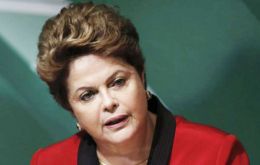
Brazilian President Dilma Rousseff acknowledged “many problems and challenges” still plague the country's woeful heath system but defended her record on the economy and education on a live 15-minute interview on the Globo television network's nightly news.
-
Wednesday, August 13th 2014 - 22:01 UTC
Campos' successor, Marina Silva represents a stronger challenger for Dilma

The deceased Brazilian presidential candidate Eduardo Campos, 49, was a former governor of the northeastern state of Pernambuco and belongs to a traditional family from the Brazilian political establishment.
-
Wednesday, August 13th 2014 - 21:58 UTC
Brazilian presidential candidate dies in air crash; three days national mourning
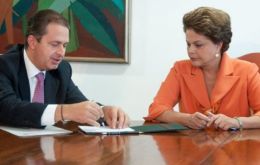
Brazilian presidential candidate Eduardo Campos, a contender to unseat President Dilma Rousseff in October elections, died Wednesday when his campaign jet crashed in the city of Santos, killing all seven people aboard.
-
Tuesday, August 12th 2014 - 05:44 UTC
Brazilian government anticipates 6% hike in fuel prices, after October election
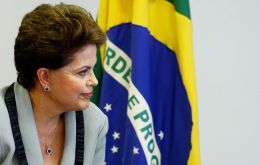
Brazilian president Dilma Rousseff admitted on Monday the government could increase domestic fuel prices at refineries by up to 6% after the October presidential election. The increase of 5.5% and 6% is a preliminary calculation and is geared to help prop the finances of the government managed oil and gas giant Petrobras.
-
Thursday, August 7th 2014 - 08:10 UTC
Rousseff claims EU has yet to agree on a proposal to exchange with Mercosur

President Dilma Rousseff claimed before the Brazil's farmers lobby that the trade agreement between Mercosur and the European Union is stalled and is not fulfilled because of the 'resistance' from several European countries, and specifically named France, Hungary and Ireland.
-
Saturday, August 2nd 2014 - 08:18 UTC
Rousseff defends industrial policy and economy performance before the sector's lobby

Brazilian President Dilma Rousseff, who hopes to be re-elected for a second term in October’s elections, has defended her government’s industrial policy in front of the sector’s business leaders, the National Confederation of Industry (CNI).
-
Monday, July 21st 2014 - 07:38 UTC
Ten hectic days await Argentina, and a possible second default in 12 years
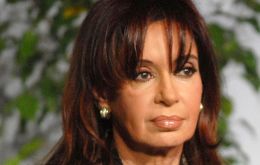
Ten hectic days ahead for Argentina since come 30 July and no agreement has been reached at the New York court of Federal Judge Thomas Griesa, (full payment plus accrued interests to holdout speculative funds) the country would be forced to a second default in twelve years with all the political consequences for Cristina Fernandez and Mercosur.
-
Saturday, July 19th 2014 - 07:36 UTC
A money rich China and Brazil dispute influence in Latam
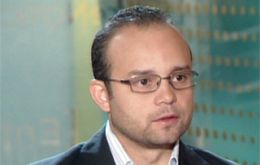
After the BRICS summit and a visit to Brazil, China's President Xi Jinping is embarking on a tour of Argentina, Venezuela and Cuba in a bid to boost ties and gain clout in the region, as analyst Victor Mijares tells Deutch Welle.
